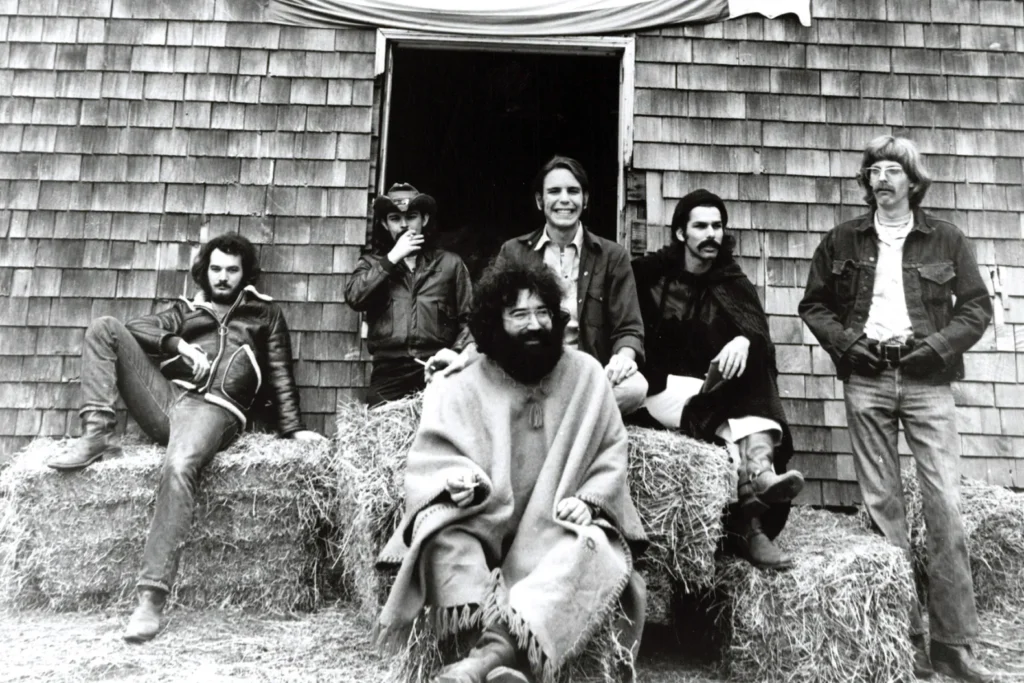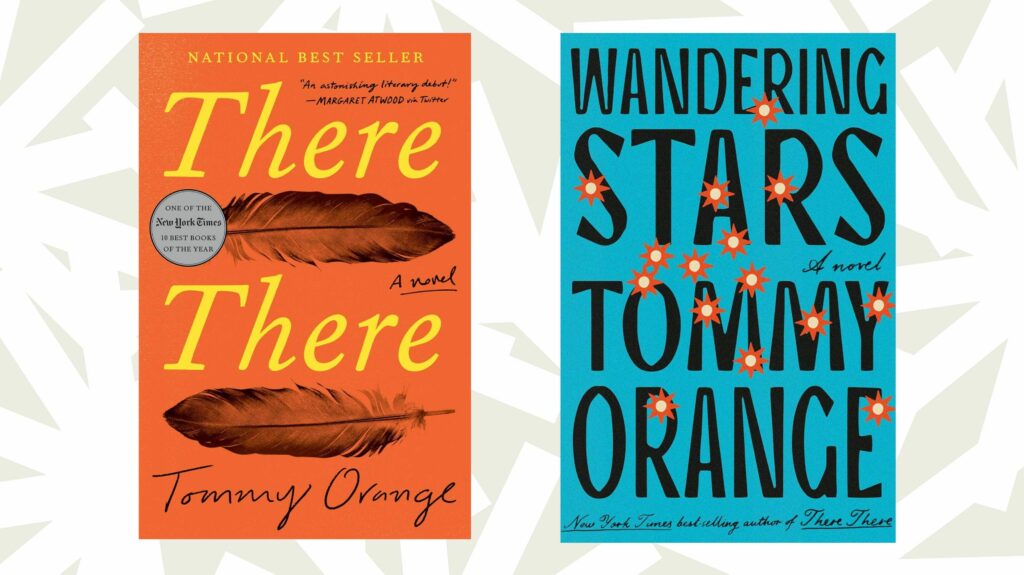
I’ve been thinking a lot about QAnon lately. To use the most scholarly, professional terms possible, it’s a bat shit crazy conspiracy theory has moved to the mainstream, punctuated by the nomination of an active QAnon supporter for a seat the United States House of Representatives in Georgia. And she’s considered a shoo-in to win as her district is so heavily Republican.
You might chalk this up to just another racist, anti-Semitic Republican joining other like-minded colleagues in Congress, but this one believes there’s a deep state conspiracy led by satanic-worshiping pedophiles trying to take over the state, and the only defense is the “Storm” that will eventually be launched by God’s hand-picked savior, Donald J. Trump that will expose and punish these evil doers.
When I was a young boy I used to stare at the headlines of the National Enquirer and other tabloids as my mom checked out in the supermarket. “Hitler is alive!” “JFK was never killed! Photos prove he lives in solitude on a deserted island!” Even as a kid, I thought to myself, do people really believe this stuff?
Yes, people do. One tenet of QAnon insanity is that JFK Jr. never died in that plane crash. He’s alive and well, a huge Trump supporter living in Pittsburgh, who will emerge on the 4th of July. Like father like son. Not Dead Yet! Coming back to save us!
People have a need to belong that can be downright scary, and now that we are all isolated, belonging is that much harder. You can’t go to work. Or your book club meeting. Or Tuesday poker night. No crowding the sports bars to see your favorite teams play. No congregating for religious services. No going to the gym with your workout buddies or yoga class. And no shared workplace.
Sure, most of that can happen online, but it’s just not the same.
How can companies continue to inspire and promote a sense of community if it’s all virtual? No chance meetings around the coffee machine that might spark a new idea or a new collaboration. No Apple-style extravaganzas with employees going wild over the arrival of the company’s latest innovations. The office, like any other institution or social construct, is the place where we belong to something “bigger.” It provides a variety of benefits including status, a place to go and a built-in set of friends and acquaintances.
The office gives us purpose. It’s a place we go for work, a part of our lives that, at least in theory, is separate from home, hobbies, family and friends.
So, what happens when people are bored, frustrated and angry, and have no other “place” to go than online? QAnon happens.
By all accounts, the movement has grown exponentially since the pandemic set in, with Facebook, for one, reporting hundreds of QAnon groups with millions of members.
Ben Franklin was right. “Idle hands are the devil’s playground.” Though in this case, the conspiracists would have you believe that it’s the Democrats, the “Deep State” and the Jews who are consorting with the devil.
What this brings to mind is David Ogilvy’s famous axiom, “The consumer is not a moron. She’s your wife.” No longer politically correct, for good reason, the quote simply states what all of us learn in Marketing 101: Great companies must have a relentless focus on their consumers. “The consumer is always right.”
I have always believed in honoring consumer wants and needs – no matter what – but the election of Trump – and probably watching Bill Maher too often – has me doubting the conventional wisdom.
Somewhere around 35% of the country is living in an alternate universe. I’m past the point of thinking that all opinions matter and that “both sides” may have equally valid points. It’s just not true. There are many voters (who are also consumers) that are just dead wrong. This is not Kennedy vs. Nixon, Bush vs. Kerry or Obama vs. McCain or Romney.
The Texas Republican Party claims that its current slogan, “We are the storm,” precisely the same slogan used by QAnon, comes from Psalm 29 in the Bible and is unrelated to the organization. Sure. And Steve Bannon just wants your money to build the wall, even though we were promised that Mexico was paying for it. Did you watch any of the Republican Convention? If so, you learned that Trump was a friend to women, black people and immigrants. And he saved us from Covid.
Is there any limit to what people will believe?
Racism is a powerful motivator. Fear of “the other” pushes people to vote against their own interests. Feeling left behind, dispossessed, they are vulnerable to cults, con artists and conspiracies like QAnon.
Of course, conspiracy theories have been around for thousands of years. Like religion, much of the appeal is explaining the unexplainable to people while engendering a sense of belonging. I’m still baffled by how society determines what is an acceptable, mainstream religion and what is a cult or a scam, but what United States Supreme Court Justice Potter Stewart said to describe his threshold test for obscenity in a 1964 case seems to say it all. “I know it when I see it.”
I would wager that 65% of the country or more would agree that they are seeing craziness when they look at QAnon. But what about the other 35%, the people, who of course, make up the Trump “base.”
Do they truly believe that Hilary Clinton was operating a child pornography ring in a Washington, D.C. pizza parlor? Do they really believe that Trump was chosen by God to fight the pedophiles, cannibals and the other evil doers of the deep state? Apparently so. And our president, who has talked about how QAnon people are patriots. “I’ve heard these are people that love our country.”
The New York Times reports that Trump…”
“…when told by a reporter about the central premise of the QAnon theory — a belief that Mr. Trump is saving the world from a satanic cult made up of pedophiles and cannibals connected to Democratic Party figures, so-called deep-state actors and Hollywood celebrities — Mr. Trump did not question the validity of the movement or the truth of those claims.
Instead, he offered his help.
“Is that supposed to be a bad thing or a good thing?” the president said lightly, responding to a reporter who asked if he could support that theory. “If I can help save the world from problems, I am willing to do it. I’m willing to put myself out there.””
Will truth ever matter again? Not if people are so filled with racist-fueled hate that they need to find their own “facts” to make sense of a changing world.
I can’t help but think of McCann Erickson’s venerable motto, coined over a hundred years ago in 1912. The global agency’s current website explains:
“Since foundation in 1912 McCann Erickson has made a name for itself in more than 120 markets with its positioning “Truth Well Told.” When truth is well told it has the power to move people, brands and markets.”
I wish it were still so. What’s moving people, brands and markets these days are “lies not so well told but it doesn’t matter because we’ll believe and anything or do anything that makes us feel better about our selfish selves.”
We have a lot of work to do in this country, but you’re just a marketing professional trying to make a living. What does this mean for you?
First, let’s not forget that voters are also consumers. Your consumers. How do you feel about your relationships with nut jobs? You’re okay with selling your sneakers to QAnon adherents? Hey, QAnon merch is hot! How about a special edition Supreme t-shirt or a pair of Nike Herschel Walker QSneaks?
I suppose if you don’t cater to them, it’s just fine to have the crazies buy your products. Though if the videos from Kenosha were to show the 17-year-old vigilante alleged murderer wearing Nike’s, that might be a problem.
“Purpose Marketing” is still in vogue, but brands are limited in what they do to save the world. Ideally, they wouldn’t be in this position in the first place, but the gaping chasm of void of national leadership has businesses and brands attempting to set social policy. With trust in government and other institutions eroding, aided and abetted by none other than our Anarchist-in-Chief, wannabe dictator, it’s a smart play. If our institutions and elected officials won’t stand behind people in need and continue to prioritize the need for “law and order” over the rights of innocent black people who are murdered on a regular basis at the hands of the police, where can people find hope?
“Just Do It?” How sad that Nike is more credible that our own government in pushing for racial equality.
Purpose marketing is all well and good, but the cynic in me feels that the “purpose” part isn’t nearly as important as the “marketing” part. Still, I can’t fault Nike or Starbucks for taking a stand on race issues just as I can’t fault any brand for donating or getting behind any cause that will help change the world in a truly positive way.
But if American businesses truly want to be a cause for good, they will promote belonging. Not just for its consumers, but for its employees.
It’s tough to do when we’re all Zoom all the time. No hanging out around the coffee maker. No lunch or drinks after work. No sitting next to someone you don’t’ know very well and discovering how much you have in common. Where’s the spontaneity?
And where’s the inspiration? I talked to a friend and client of mine this week who is tasked with heading up marketing culture and education for a major global company. She has successfully organized a weekly talk featuring an engaging expert, sometimes from inside and sometimes from the outside, that draws more than 500 marketing people – an impressive figure – on average. I take her at her word when she says the speakers are inspiring. Yet the common complaint she hears from her colleagues is that, “we are not inspired enough.”
She has taken the company from a place where events meant to inspire took place periodically to a regular, weekly occurrence. Still, they complain, and implicit in this must be that they aren’t inspired because they don’t feel like they totally belong when they’re working in their pj’s from the kitchen.
The pandemic has opened the eyes of businesses. Maybe everyone doesn’t have to be in the office. Maybe getting on a plane to travel to a meeting is a thing of the past. Why put on national sales meetings at great expense when we can get everyone on Zoom for nothing? Why do marketing research in person when you can do it online?
As my friend is finding out, rallying the troops online is may not be the answer. People are hard wired to make real life, high touch connections. We want to see things unfold in reality and not just on screens. This is why people go to baseball games and concerts and movies. The crowd is always a character in the drama. Remove the human element and what do you have?
Despite the fact that Salesforce announced today that it will allow its employees to work from home until August 2021, the first order of business should be getting people back into the office once it’s safe. Perhaps not every day – there are myriad benefits to allowing people the flexibility of working from home – but at least once or twice a week. Rallying the troops from a distance works only to a point.
More important, despite the economic challenges and great progress on benefits, family leave, flexible work schedules and other initiatives, companies have to treat employees even better.
I admire much of what businesses like Nike do to promote social justice, though they are from perfect. Nike, for all its high-profile grandstanding, has serious issues with the double standard they apply to their male and female endorsers. Guess who gets the better deals and can avoid being dropped entirely or put up with a loss in endorsement fees when they get pregnant?
Even the most forward-looking companies, those getting good press for providing family leave, health benefits, financial support for education, etc. don’t really provide an iota of support for their employees when the going gets tough. The minute sales drop or expenses increase, they’ll through you under the bus to meet their quarterly numbers.
Until the “swamp” is truly drained and our country is united, as best it can be, by an inspirational figure, business needs to do more.
Compensation needs to improve, especially for those at the bottom of the income scale. Businesses will hire people as employees, not independent contractors. Jobs need to be more secure. People must be treated with dignity and appreciated for their work.
Getting fired other than “for cause” was once rare in this country. Now it seems everyone gets fired, and most often, it’s unrelated to performance. A Forbes article from 2019 claims that “for those over 50 and gainfully employed, a new study says you have a 56% chance that you’ll be let go before you’re ready to retire, risking substantial income loss.” Those aren’t great odds, and the workplace is not any less perilous for younger people.

If QAnon isn’t enough of a cautionary tale, the need to channel our human need to belong into more positive pursuits, consider the story of Kyle Rittenhouse, the previously mentioned white 17-year-old who took to the streets of Kenosha, Wisconsin in the wake of the Jacob Blake shooting, armed with a military-style rifle.
The New York Times reports that “Rittenhouse, who had showed strong support for the police and President Trump on social media, had portrayed himself as a helper to injured people and defender of property when he arrived on the streets of Kenosha during demonstrations earlier this week. (Now he) is accused of killing two people in a shooting that took place amid a skirmish between demonstrators and counterprotesters…He faces six criminal counts, including first-degree reckless homicide, first-degree intentional homicide and attempted first-degree intentional homicide.”



